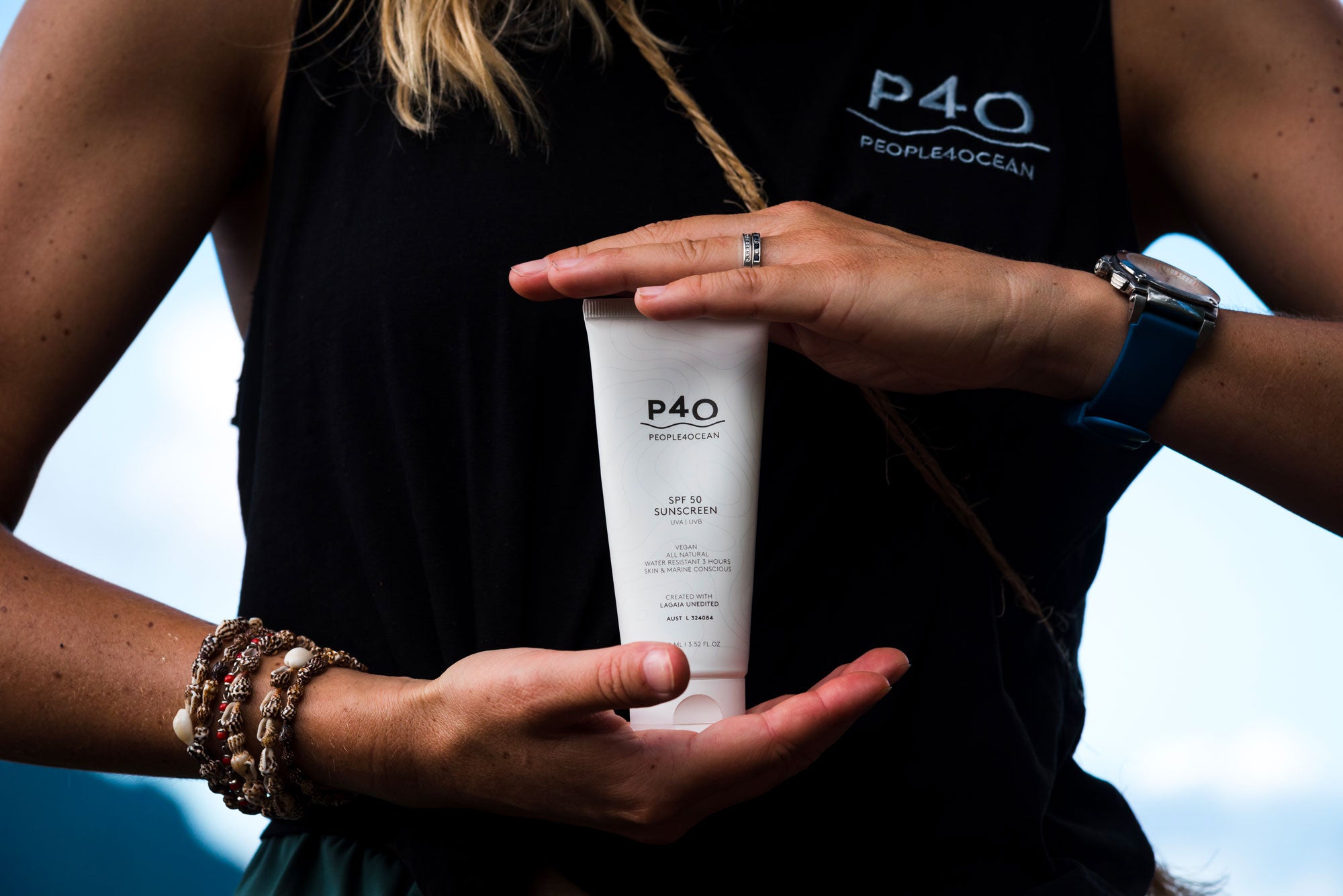
Did you know 90% of skin ageing and skin cancers are caused by UV-damage from sun exposure? According to National surveys, two in three Australians will be diagnosed with skin cancer by the age of 70. But let’s face it, there is nothing better, than being outside and feeling the sun on your skin.
Don’t worry, you can have fun under the sun while still protecting your skin. All you need to do is slather some on sunscreen before stepping outside! When used as directed, regular daily use of sunscreen can lower your risk of developing melanoma skin cancer by about 50%. For this reason, everyone should wear sunscreen, especially kids.
But not all sunscreens are created equal. Sometimes, chemical sunscreens can do more harm than good. In recent years, several studies have highlighted concerning health drawbacks caused by ingredients in chemical sunscreens. To protect your skin in the safest way, you will want to choose a chemical free sunscreen. Natural sunblock provides more benefits than blocking out the harmful UV rays. Not only that, but sunscreen sans chemicals and preservatives doesn’t contain other harmful ingredients that can do more damage than good.
Here are 4 reasons to use chemical free sunscreen...
1. Contains No Chemicals
Did you know many of the sunscreen brands you see in the store are made of various chemicals?
These chemicals include UV-filters such as octinoxate, oxybenzone, octocrylene, octisalate, avobenzone, and homosalate. What’s more, they are generally used in combination because no single one, at currently permitted concentration, provides sufficient protection against UV radiation.
More concerning even, recent FDA studies showing that the ingredients Oxybenzone, Octinoxate, Octisalate, Octocrylene, Homosalate and Avobenzone are all systemically absorbed into the body after a single use and detectable in urine and breastmilk weeks after application ended.
Most chemical free sunscreens will only contain UV-filters of mineral origin. These blockers sit on top of the skin (like a mirror) and reflect UVA and UVB rays away from the skin, protecting it from UV damage and ageing without entering the body.
2. Better for the Ocean
Do you plan on going to the beach after putting on some sunscreen? The chemicals in sunscreen don’t only harm you, but they’re bad for the ocean. They’re especially deadly to coral reefs.
In fact, 97% of sunscreens on the market contain chemicals that are toxic to coral reefs, even at small concentrations. In 2018, the state of Hawaii was first in history to ban the sale of sunscreens containing Oxybenzone and Octinoxate to protect its coral reefs, providing countless goods and services to the people of Hawaii.

Like the people of Hawaii, we should all make the switch to natural, chemical free, mineral-based and biodegradable sunscreen. They’re made with the mineral UV-blockers titanium dioxide or zinc oxide, which wards off UV rays with less impacts on aquatic environments. You can also find cruelty-free sunscreen, which is kind to all animals. Remember, the best way to protect your skin while limiting the wash-off of chemicals into the ocean is to seek shade and wear UV-protective clothing. Apply your sunscreen 20 minutes before entering the water to allow for your sunscreen to soak-in and work in an effective way
3. Great for All Skin Types
Let’s go back to those chemicals again. As stated previously, they’re absorbed into your skin. If these chemicals do damage to coral reefs, imagine what they can do to your skin!
Even though they linger in the skin, not everyone will experience a bad reaction while applying chemical sunscreen. But the chemical compounds in sunscreen could affect your health in other ways.
In recent years, several studies have highlighted various health drawbacks caused by ingredients in chemical sunscreens: from increased free-radicals in the skin, endocrine disruptive properties in the body and – ironically – enhanced risk of melanoma in cases of sunscreen abuse for intentional sun exposure. It is no surprise that chemical sunscreen brands commonly cause allergic reactions and hyper-sensitivities to sunscreen at record high within the young demographics.

Reef-safe sunscreens will generally contain less or no harsh chemicals as these also turn out to be bad for marine life. That’s why reef-safe sunscreens are also skin-safe. Dermatologists recommend to those with sensitive, acne-prone skin to avoid harsh chemical sunscreens and prefer natural, more gentle formulas. But with the new knowledge on the environmental and health impacts of chemical sunscreens, everyone should consider making the switch to mineral-based sunscreen.You can also find a variety of different formulas, such as ones that moisturize your skin.
4. The Best Option for Kids
Because of all of the reasons mentioned, chemical free sunscreens are the best option for toddlers and children. In 2008, the Scientific Committee on Consumer Products (SCCP) declared not advisable to apply chemical sunscreens [oxybenzone, avobenzone] before the age of 2. A few years later, several chemical UV-filters were detected in 85% of Swiss breast milk samples. From then, it was not recommended to wear chemical sunscreen while breastfeeding either.
Zinc oxide and titanium dioxide are considered the only safe and effective ingredients. Since the FDA is re-evaluating their position on sunscreen chemicals, it’s recommended that parents only apply mineral sunscreen to children.
Buy a Chemical Free Sunscreen Today!
We have been told to apply sunscreen regularly for decades. And there’s a good reason why — skin protection protects us from aging, skin cancer, and other issues caused by harmful UV rays.
But what about the ingredients in your sunscreen? There have been studies that show the chemicals in your sunscreen can cause unwanted side effects and also harm the coral reefs. Fortunately, chemical free sunscreen is your solution to healthy and eco-friendly protection from the sun.
Are you looking for the best au naturel sunscreens? We offer a wide range of sun protection products, such as moisturising, sport, and even vegan sunscreen.
Make the switch to People4Ocean's chemical free sunscreens!


Comments (0)
Back to Blog